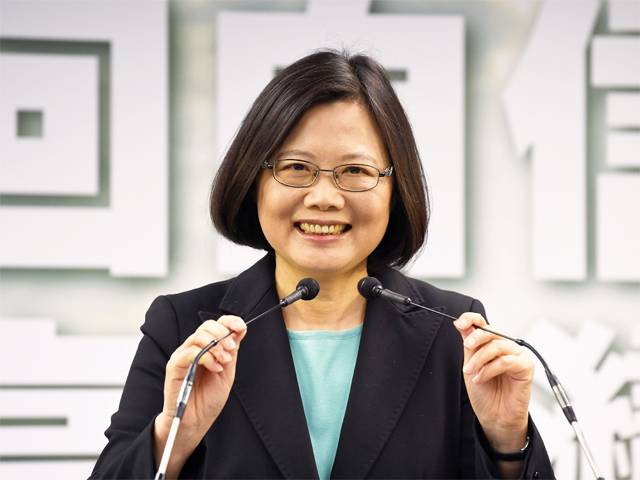So the Taiwanese people have just elected a woman president.
The only time China was ruled by a woman during its two and a half millennia of imperial rule was with empress Wu Zetian, who ruled from 690 to 705 AD. The famous (and infamous) Empress Dowager Cixi, who was the de facto ruler of China from 1867 to her death in 1908, was never officially made empress.
In modern times, none of the countries which could be termed the "Chinese cultural sphere" had ever had a woman leader until a couple of days ago. Not the PRC, not Taiwan, not even Singapore. In fact, before Park Geun-hye's election in South Korea in 2012, there hadn't been a single woman leader in any East Asian country, including Korea and Japan.
It is interesting to note that by contrast, many countries in other parts of Asia have had important women leaders, from Indira Gandhi in India and Benazir Bhutto in Pakistan to Corazon Aquino in the Philippines (the first two were of course the daughters of celebrated male heads of state). Many of these countries might come across as more sexist than China, but in this particular area they fare better. Even though in a Chinese context it is perfectly normal for women to work and quite possible for them to be respected and reach the top tiers in business, they have found it much harder to rise to the top in politics.
Taiwan has now become the first Chinese-speaking society to break the spell and choose a woman leader (although many of her followers reject the "Chinese" label altogether). Appropriately, she represents a party which was born out of a popular uprising against an authoritarian state, and which has overwhelmingly won the youth vote. These elections only confirm that, in this as in other areas, Taiwan is the most progressive society in the Chinese world.
The only time China was ruled by a woman during its two and a half millennia of imperial rule was with empress Wu Zetian, who ruled from 690 to 705 AD. The famous (and infamous) Empress Dowager Cixi, who was the de facto ruler of China from 1867 to her death in 1908, was never officially made empress.
In modern times, none of the countries which could be termed the "Chinese cultural sphere" had ever had a woman leader until a couple of days ago. Not the PRC, not Taiwan, not even Singapore. In fact, before Park Geun-hye's election in South Korea in 2012, there hadn't been a single woman leader in any East Asian country, including Korea and Japan.
It is interesting to note that by contrast, many countries in other parts of Asia have had important women leaders, from Indira Gandhi in India and Benazir Bhutto in Pakistan to Corazon Aquino in the Philippines (the first two were of course the daughters of celebrated male heads of state). Many of these countries might come across as more sexist than China, but in this particular area they fare better. Even though in a Chinese context it is perfectly normal for women to work and quite possible for them to be respected and reach the top tiers in business, they have found it much harder to rise to the top in politics.
Taiwan has now become the first Chinese-speaking society to break the spell and choose a woman leader (although many of her followers reject the "Chinese" label altogether). Appropriately, she represents a party which was born out of a popular uprising against an authoritarian state, and which has overwhelmingly won the youth vote. These elections only confirm that, in this as in other areas, Taiwan is the most progressive society in the Chinese world.

2 comments:
This would kill Confucius if he wasn't already dead.
Cory Aquino, of course, was the wife of a former president. Basically Tsai Ingwen is the second modern Asian female leader who doesn't owe her assent to the presidency primarily to family ties after Park.
Post a Comment